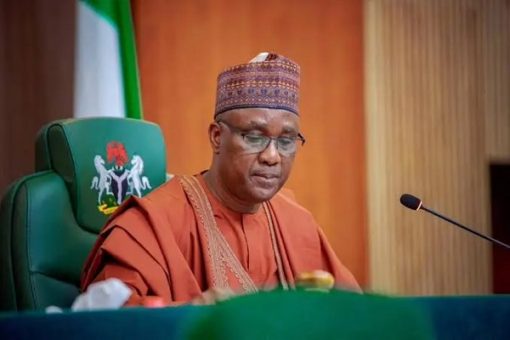Akwa Ibom’s bold strategy to empower entrepreneurs for a thriving future

By Theresa Donatus
In the heart of Akwa Ibom State, a quiet revolution is unfolding, one that could change the landscape of entrepreneurship in Nigeria and, indeed, across the West Africa.
At the forefront of this movement is Governor Pastor Umo Eno, whose visionary approach to economic development is not just about financial aid but about providing the essential tools that local entrepreneurs need to thrive.
A recent needs assessment conducted during entrepreneurial training in Akwa Ibom revealed a common challenge among small businesses to be the lack of field equipment.
For many entrepreneurs, whether in tailoring, barbing, shoemaking, welding, laundry, hair styling, car washing, make-up artistry, or milling, access to the right equipment is a significant barrier to growth. Without it, productivity is stunted, expansion becomes a distant dream, and profits remain stagnant.
READ ALSO: The Blame Game Backfires: Babangida’s Memoir Sparks New Scrutiny of His Leadership Failures
Governor Eno recognized this gap and, rather than simply providing financial grants, took a bold step: he made equipment financing a central part of his strategy to empower over 2,000 entrepreneurs across the state.
Through this initiative, he has donated cash grants, mini buses, and crucial business equipment, ensuring that beneficiaries are not only given funds but the tangible tools needed to scale their operations, improve efficiency, and increase their profitability.
The Governor’s equipment financing model is aligned with his broader vision for economic transformation under the ARISE Agenda.
By providing entrepreneurs with assets such as industrial sewing machines, welding equipment, and palm oil mills, Eno is ensuring that businesses have the right foundation to sustain long-term growth.
The idea is simple but profound: equip entrepreneurs with what they need, and they will build a sustainable business ecosystem that can weather economic storms and contribute significantly to the state’s growth.
The focus on providing tangible assets instead of just financial grants marks a strategic departure from traditional empowerment programs.
Governor Eno’s initiative resonates with global best practices observed in emerging economies, where access to equipment has been a key factor in scaling small businesses.
By addressing the structural barriers that limit access to finance and resources, Akwa Ibom is setting itself apart as a model for other regions.
In Nigeria, Micro, Small, and Medium Enterprises (MSMEs) represent the backbone of the economy, contributing up to 60% of GDP in many developing countries.
However, despite their importance, many MSMEs in Nigeria struggle to scale beyond subsistence levels, sector holding back growth is the lack of access to financing and essential resources. Only about 15% of Nigerian MSMEs grow to a sustainable scale due to structural challenges like high operational costs and limited market access.
Governor Eno’s intervention is a direct response to these challenges, offering a new pathway for growth. It’s more than just an empowerment scheme, it’s an investment in the future of small businesses.
Through the Ibom Leadership and Entrepreneurial Development Centre (IBOMLED), the government is ensuring that the process of selection, training, and empowerment is inclusive and merit-based.
The support goes beyond equipment: it includes capacity-building initiatives, financial literacy programs, and business management skills to help entrepreneurs manage and grow their ventures successfully.
One of the cornerstones of this initiative is the partnership between Akwa Ibom and the Bank of Industry (BOI). Governor Eno has secured a landmark N2 billion in funding for MSMEs, creating a low-interest loan scheme that allows entrepreneurs to access working capital, invest in new equipment, and expand their operations.
This partnership is an unprecedented step in Akwa Ibom’s history, creating a sustainable financing ecosystem for businesses that can fuel long-term growth.
For Meflyn Anwana, the Aide to Governor Umo Eno on Entrepreneurship Development, the vision is clear: “Akwa Ibom is uniquely positioned as an entrepreneurial hub in West Africa’s fastest-growing economic corridor,” he says.
With a population of over 200 million consumers in Nigeria, along with access to the $3.4 trillion African Continental Free Trade Area (AfCFTA) market, the state is poised to leverage trade opportunities like never before.
“With the development of infrastructure projects like the Ibom Deep Seaport and Ibom Industrial City, Akwa Ibom is set to become a key player in regional and international trade,” Anwana adds.
The state’s new infrastructure will not only improve logistics and supply chains but will also open doors for MSMEs to access global markets, export locally produced goods, and attract foreign investment.
Governor Eno’s strategy is particularly notable for its inclusivity, a percentage of Akwa Ibom’s MSME sector is made up of women and young people, yet these groups often face unique challenges when it comes to finance, mentorship, and market access.
Under Governor Eno’s leadership, Akwa Ibom has implemented programs through IBOMLED and the Enterprise Acceleration Program (EAP) that provide targeted support for women-led businesses and youth entrepreneurship.
Through these programs, young entrepreneurs and women receive startup financing, access to venture capital, and capacity-building initiatives. The state also offers market linkages, ensuring that local businesses can connect with national and international buyers. This inclusivity aligns with the United Nations Sustainable Development Goals (SDGs), which promote gender equality, economic growth, and decent work.
Governor Umo Eno’s approach is transforming Akwa Ibom into a model of what can be achieved when government and business collaborate to support entrepreneurship.
By investing in equipment financing, entrepreneurship education, and creating a conducive business environment, the state is positioning itself to become a globally competitive, entrepreneur-driven economy.
For Anwana, the significance of this initiative is far-reaching. “Akwa Ibom’s model offers valuable lessons for governments, investors, and policymakers across Africa,” he says.
“This isn’t just about providing capital; it’s about creating an enabling environment that empowers entrepreneurs with the right tools, policies, and partnerships to succeed.”
As Akwa Ibom continues to lead the charge in empowering entrepreneurs, it serves as a shining example of how strategic government intervention, backed by the right partnerships and resources, can foster economic growth, innovation, and long-term prosperity.
In Akwa Ibom, the future of entrepreneurship is no longer a distant dream. It’s a vibrant reality, one that promises to change the economic landscape of the region and beyond.










